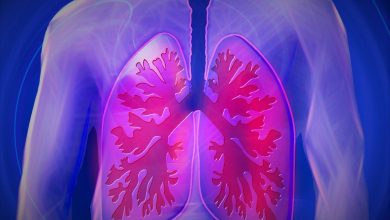Things you should know about pulmonary disease?
You don’t realize how vital your lungs are until they fail to function accurately. Lungs are significant organs without which nobody can survive. Coughing and wheezing are common symptoms of the common cold and flu. Thankfully, these brief lung issues go away. However, sadly, millions of Americans suffer from chronic lung disease, which can be painful, life-threatening, or even fatal. If you are experiencing lung issues, contact a pulmonary doctor in Michigan for the best respiratory treatment.
Despite its prevalence, pulmonary disease is frequently not given the same importance as numerous other issues. So what should you know about the different types of lung diseases, their causes, treatment procedures, and how to prevent them? In this blog, we will help answer these questions.
What is Pulmonology?
The field of internal medicine that focuses on the respiratory system is known as pulmonology. It involves the lungs, upper airways, thoracic cavity, and chest wall.
Pulmonary medication has been around for many years, yet developed into its clinical specialty during the 1950s when William Welch and William Osler established the American Thoracic Culture, made to study and forestall tuberculosis.
The field of pulmonology includes different clinical methods. That involves the examinations of blood and arteries. Furthermore, pulmonologists examine blood tests, lung volume, and lung functions with pulmonary function tests.
Who is a Pulmonologist?
A healthcare physician who focuses on the respiratory system is known as a pulmonologist. If your complaint involves the lungs or any part of the respiratory system, a pulmonologist is a doctor you should see to find a solution.
A pulmonologist examines, diagnoses, and treats respiratory conditions. Furthermore, these medical professionals are also called chest doctors, lung specialists, or lung doctors. Pulmonologist work in several settings. You can find them in their clinics or hospitals.
Why would you need to see a Pulmonologist?
If you’re suffering from symptoms related to your chest or lungs, consult a primary care doctor. They will conduct a medical examination and might refer you to a pulmonary doctor if you have
- Increased breathlessness
- Chronic persistent cough
- Cough that contains blood or mucus
- Unexplained weight loss
- Occasional shortness of breath, especially after exercise
- The need to clear your throat often
- Sometimes waking up at night feeling breathless
- Frequent chest infections
- Persistent wheezing
In addition, you might begin making minor adjustments, such as avoiding stairs and skipping physical activities. If you have a high temperature or don’t feel like doing your typical exercises, try to remain at home. Keep away from contact with others until you feel significantly improved. Furthermore, a “flare-up” or “exacerbation” is when your symptoms suddenly worsen. Although treatment can help slow the progression, it is common to experience a few flare-ups, particularly during the winter.
What conditions do Pulmonologists treat?
Pulmonary doctors are skilled and experienced in various types of respiratory disorders. Some of them include
Infectious
- Structural
- Inflammatory
- Neoplastic
- Autoimmune
In addition, their expertise extends to the cardiovascular system. Some of the conditions they treat are:
Asthma
- Bronchiectasis
- Acute and chronic bronchitis
- Chronic obstructive pulmonary disease (COPD)
- Interstitial lung diseases
- Occupational lung disease
- Obstructive sleep apnea
- Tuberculosis
- Emphysema
- Lung cancer
- Pulmonary hypertension
- Cystic fibrosis.
Moreover, specific conditions, such as pulmonary vascular disease, affect the respiratory system and later affect other parts of the body.
What are the causes of Pulmonary Disease?
Pulmonary disease is caused by various factors, including:
Smoking: Smoking is the leading cause of pulmonary disease, including chronic bronchitis, emphysema, and lung cancer.
- Environmental pollutants: Exposure to environmental pollutants, such as air pollution, dust, and chemicals, can damage the lungs and increase the risk of pulmonary disease.
- Genetic factors: Some types of pulmonary diseases, such as cystic fibrosis and alpha-1 antitrypsin deficiency, are caused by genetic factors.
- Infections: Infections such as pneumonia and tuberculosis can damage the lungs and lead to pulmonary disease.
- Allergies: Allergic reactions can cause inflammation in the lungs and airways, leading to conditions such as asthma.
- Occupational exposure: Certain occupations, such as mining and construction, may expose workers to dust, chemicals, and other pollutants that can damage the lungs and lead to pulmonary disease.
- Aging: As people age, their lung function naturally declines, which can increase the risk of pulmonary disease.
- Lifestyle factors: Lifestyle factors such as a sedentary lifestyle, poor nutrition, and obesity can also contribute to pulmonary disease.
Furthermore, it is vital to note that some types of pulmonary disease have multiple causes, and individual factors such as genetics and lifestyle m




